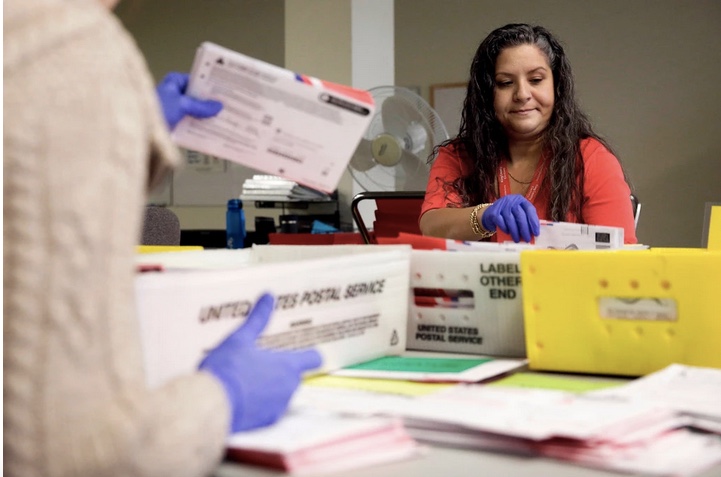President Trump said that if the United States switched to all-mail voting, “you’d never have a Republican elected in this country again.”
The G.O.P. speaker of the House in Georgia said an all-mail election would be “extremely devastating to Republicans.”
Representative Thomas Massie, a Kentucky Republican, said universal mail voting would be “the end of our republic as we know it.”
Yet leading experts who have studied voting by mail say none of that is true.
As with false claims by Republicans about vote-by-mail fraud, there is no evidence to back up the argument from the right that all-mail elections favor Democrats. But Mr. Trump and some of his allies are warning that vote-by-mail poses an existential threat to their party, in hopes of galvanizing Republican opposition to a voting method that is widely seen as safer than in-person voting in the era of the coronavirus.
Five states — Colorado, Hawaii, Oregon, Utah and Washington — now have all-mail elections, in which ballots are sent to every registered voter without their having to request one. Others, like Arizona and California, allow voters to add themselves to a permanent list of mail voters.
And there are also cases like Nebraska, which allows counties of less than 10,000 people to mail ballots to all voters (many of them Republicans) but forbids it in large urban areas (where many voters are Democrats). Texas allows no-excuse absentee voting for people 65 or older, another group that skews Republican.
None of these states have seen an appreciable shift favoring Democrats that officials and experts attribute to mail voting. Here are a few reasons.




